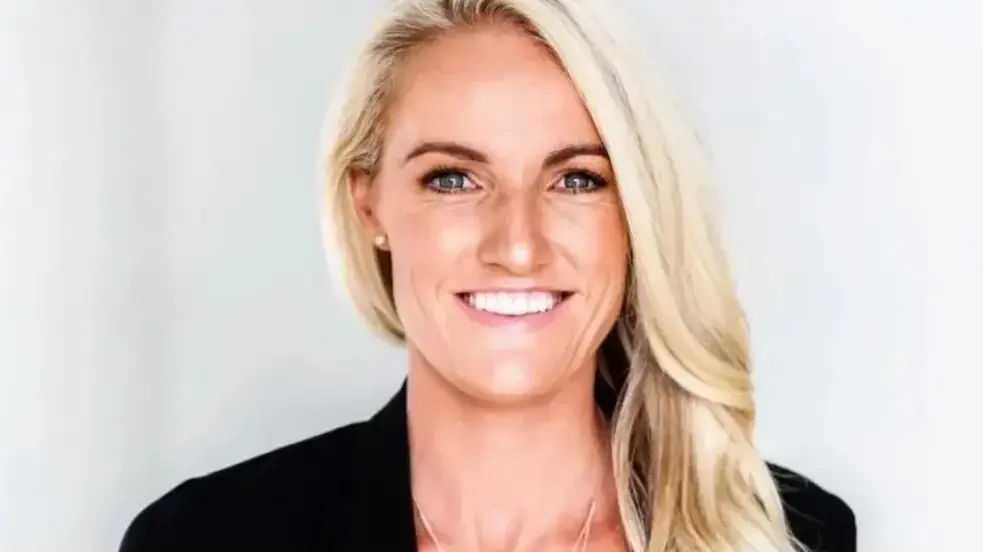Ashley Audrain attends EL PAÍS por Zoom from Toronto, the city where she resides, just one hour before the virtual presentation of her book,
El instinto (
Alfaguara), in Spain.
He wears a radiant smile despite the time difference (it is barely 10:00 am in Canada) and he answers slowly, giving himself time for reflection, to the questions raised by this debut novel called to be one of the editorial booms of the year: appears on
The New York Times bestseller list
, ranks number one in Canada since its publication and is already confirmed for publication in 30 countries in 2021. Former communication director of Penguin Books Canada, Audrain acknowledges that in the conception by
The instinct
her experience with motherhood (she is the mother of two children) has weighed more than her knowledge of the publishing sector.
“Precisely because I knew the sector and knew how difficult it is to publish a book and have it sold, when I started writing I didn't do it with any expectations.
I was simply writing for myself and I believe that, for that very reason, the book is so dark and enters such dark places.
Surely, if I had thought of a final reader, I would not have written in the same way ”, he affirms.
In those dark places of the maternal experience, in the ambivalences and fears, this psychological thriller deepens with an ending worthy of
Open Wounds
that is part of the increasingly popular genre of
mum noir
or maternal
crime
novel: “Since I am a mother I see that there is a very big connection between motherhood and fear.
As great as between motherhood and love.
You cannot be a mother without feeling that deep fear that something will happen to your child, of doing things wrong as a mother… It is a fear that consumes you and literature is a very good place to explore it ”.
QUESTION.
There is a moment when Cecilia, the mother of Blythe, the protagonist, tells her that before she became a mother she wanted to be a poet.
You can try again, his daughter replies.
No, there is nothing left in me, Cecilia concludes.
As I read that sentence, I thought of you, who started writing the novel when your son was six months old.
Does a child empty the writing capacity or fill it?
ANSWER.
I have heard and read from other writers who tell how in their case motherhood took away that kind of creative energy.
In the end, motherhood absorbs you a lot.
And it also happened to me when I had my first child, but in my case I would almost tell you that to a greater extent the opposite happened to me, that a kind of enormous creative force sprouted in me and I felt a need to write very strongly.
I always wanted to write, but I had never had that longing, that incandescent desire.
When I was a mother, however, I did experience them.
Looking back, I think I could not have written this book if I had not been a mother.
More information
Motherhood will be feminist or it won't
Have motherhood and fatherhood gotten out of hand?
P.
The novel is a publishing boom, since it is published simultaneously in 30 countries.
A lot will have to do with your
thriller
style
, which is one of those novels that generates addiction, but do you think that this success also shows that motherhood is a subject that has gained more prominence and more recognition in the literary world?
R.
There is a growing appetite on the part of readers and more demand to explore the world of motherhood and its connection with fear.
In the end, all these books that are appearing and that move the scope of the psychological thriller, of what has been called
mum noir
, are about the worst fears of mothers.
Since I have been a mother, I have seen that there is a very great connection between motherhood and fear.
As great as between motherhood and love.
You cannot be a mother without feeling that deep fear that something will happen to your child, of doing things wrong as a mother ... It is a fear that consumes you and literature is a very good place to explore it.
Q.
Was it necessary that, far from the usual idealization, literature addressed that darker side of motherhood?
R.
Of course because very often we move between two extremes of mother: on one side, the mother totally uncontrolled and crazy.
To the other, the perfect and ideal mother who makes all the right decisions.
Literature is making way for mothers who are halfway there, which in the end we are all.
Mothers who feel crazy one day and perfect the next.
Q.
Until recently, however, it seemed that denying the experience was almost taboo.
Do you think that, in addition to literature, have blogs and social networks helped a lot in breaking that taboo?
R.
In that sense I have mixed feelings.
On the one hand, I think that social networks have allowed us to share much more than before, open our lives to the outside.
On the other hand, however, I also believe that we censor what we say.
That is, on the one hand, social media encourages us to share our things, but on those things we apply a filter because social networks also open us to the judgment of others.
It is a troubled relationship.
I think my generation is the first to be a mother on social media and this introduces a new level of complexity in motherhood.
Q.
There are many themes to address in your novel.
One is that of the three maternity wards that intersect in it: Etta, Cecilia and Blythe.
Grandmother, mother and daughter, all marked by motherhood and abandonment.
Is it impossible to escape that self-destructive maternal genetics?
R.
What I was exploring with those three generations of mothers is a question.
Can we escape from our past?
Can we put aside the baggage that we carry?
Is it enough to want to be different?
Blythe tries with all her might to escape to that past, she is desperate to be different from the mother she had, but she carries such a great weight that she mutilates and incapacitates her.
Q.
And then there are the expectations that husband and in-laws place on Blythe.
To what extent do these expectations continue to weigh on the maternal experience?
A.
Social expectations about motherhood are a huge burden for women.
At least I felt that way.
Society constantly tells us what kind of mother we should be, how we should feel, and even how we should talk about motherhood.
And this is something that I see even with my 3-year-old daughter.
I see how it is spoken to, the toys that are given to it, the way people play with it ... From childhood we are getting the message that this is instinctive and you have to like it.
And that may be the case for many women, but not for all.
We have made such a close connection between motherhood and what it is to be a woman, that from my point of view it is very problematic for many women.
And society not only tells women, but also men.
Fox, Blythe's husband, is the example: he feels that he needs or is owed a certain type of woman, that the woman he marries must be a perfect mother, like his own.
And when his expectation is not met, he feels that his situation is due to his wife's failure with motherhood.
Q.
I really like the character of the daughter, Violet, because it breaks the myth of childhood innocence and purity.
R.
I was fascinated by the idea.
We all love to believe in the natural innocence of a child, to believe that they are not capable of doing something evil, but children are capable of things like that.
And there are examples of this.
But it is always preferred to accuse the fathers and, above all, the mothers, of the children who go out like this.
But I don't think that is the case.
We all want our children to be good people, but the reality is that we are not in control.
Often when I see adults doing terrible things on television, I unconsciously think of their parents, who they will be.
And not to judge them, but out of curiosity.
I wonder what it must have been like to raise that person as a child, when did those parents realize that their child was capable of doing things like that.
P.
The death of Sam, the couple's youngest son, deals the final blow to the relationship between Blythe and Fox, which was already starting to break down.
"There is no couple capable of imagining what their relationship will be like after having children," he writes.
R.
Indeed.
That is something that has always fascinated me.
When a couple has a child, both parents change a lot as individuals.
It is almost impossible to explain how much one changes as soon as the baby appears.
However, at the same time, there is an impulse to return to the same relationship as a lifelong partner, we tend to think that it will continue to function the same, as if nothing had happened.
And that is impossible.
The relationship that is founded after motherhood is new and there may be problems if we expect to try to maintain the same previous relationship.
P.
Blythe complains that Fox no longer sees her as a woman, but only as the mother of her daughter.
R.
I believe that many women feel something similar.
In fact, many have written to me about a scene in which we see everything Blythe does throughout the day, an endless list of tasks (cleaning, washing, scrubbing, cooking, feeding the children, dressing them and change them, etc.).
It is a very simple scene but one that has connected a lot with mothers, especially at the end, when Blythe talks about herself as if she were a machine.
Everyone in your world needs it for physical reasons.
And yet she, who has spent her life trying to be a writer, suddenly realizes that the only thing they value about her is all those domestic things she has to do throughout the day.
You can follow De mamas & de papas on
,
or subscribe here to the
Newsletter
.






